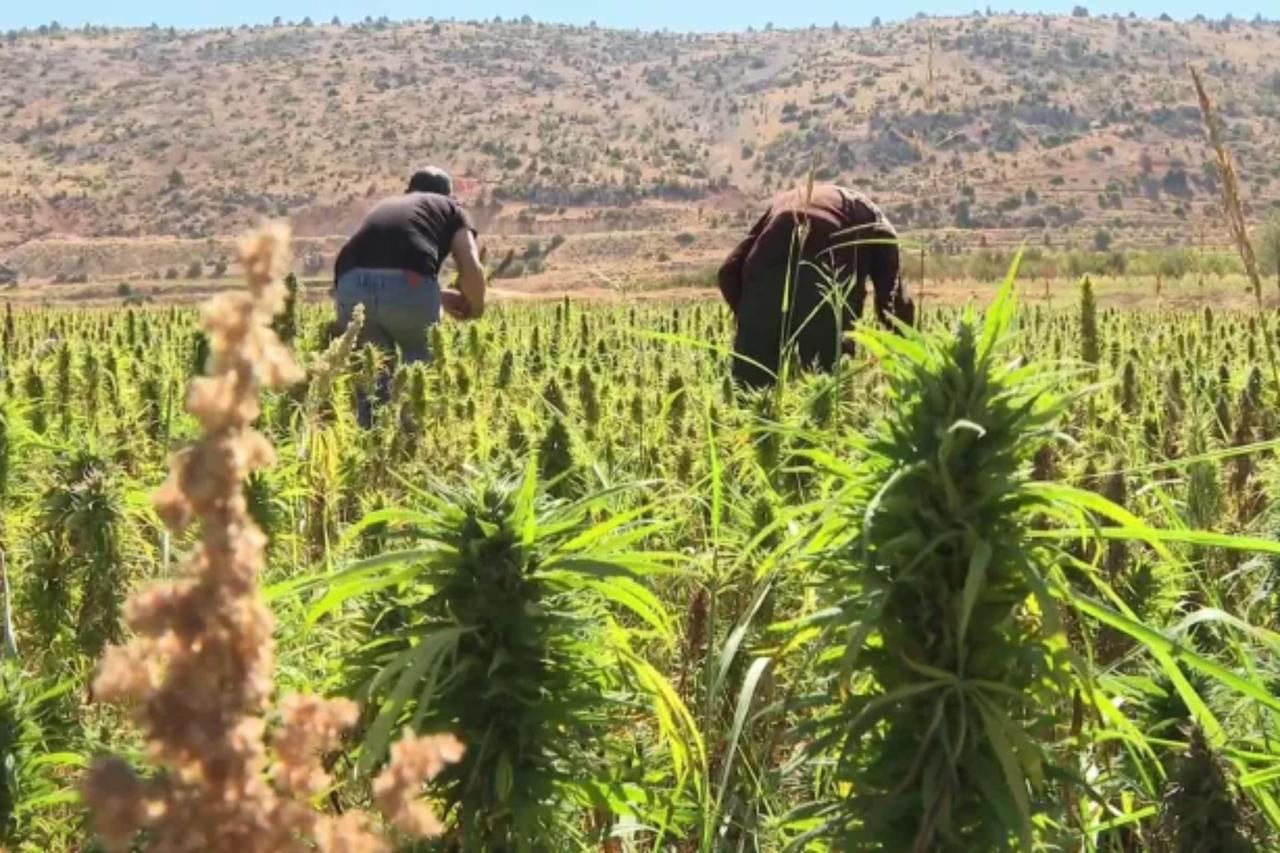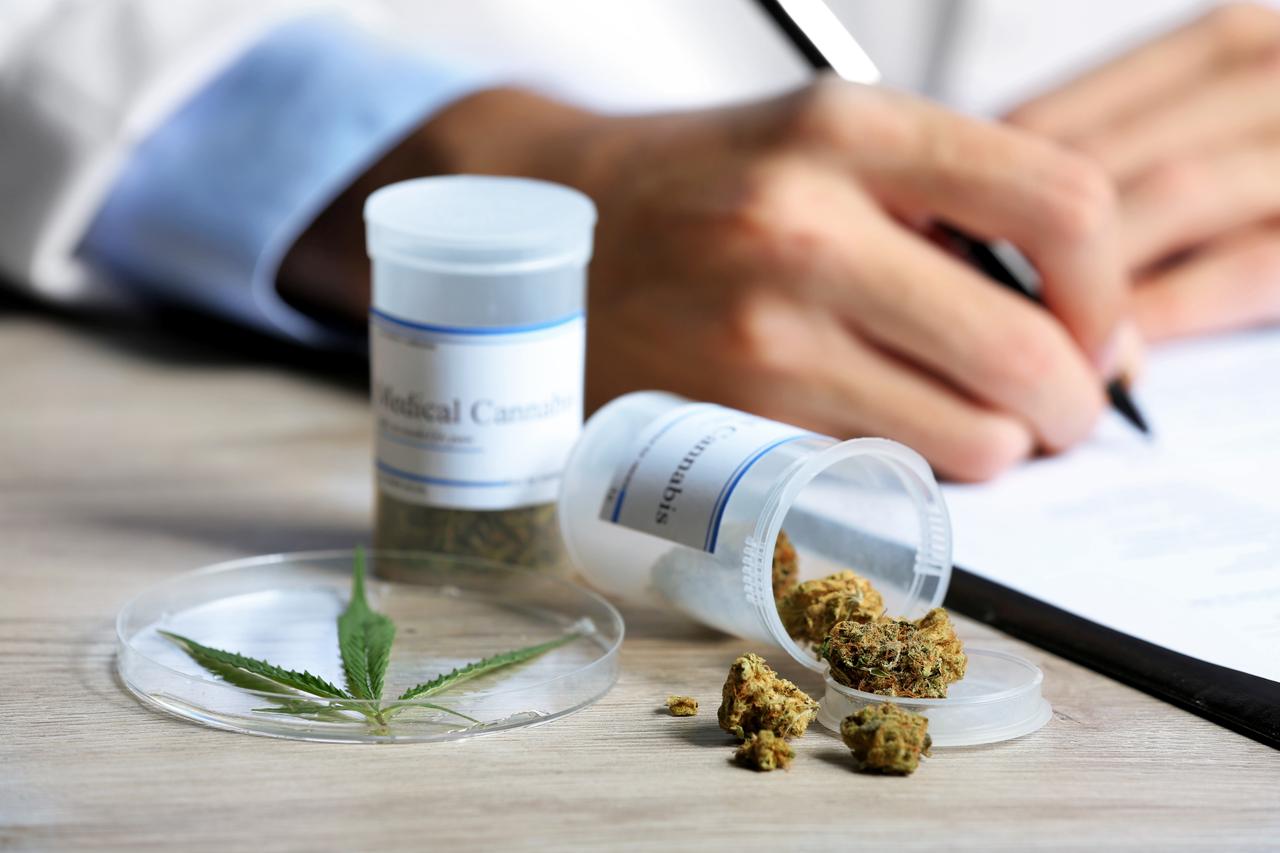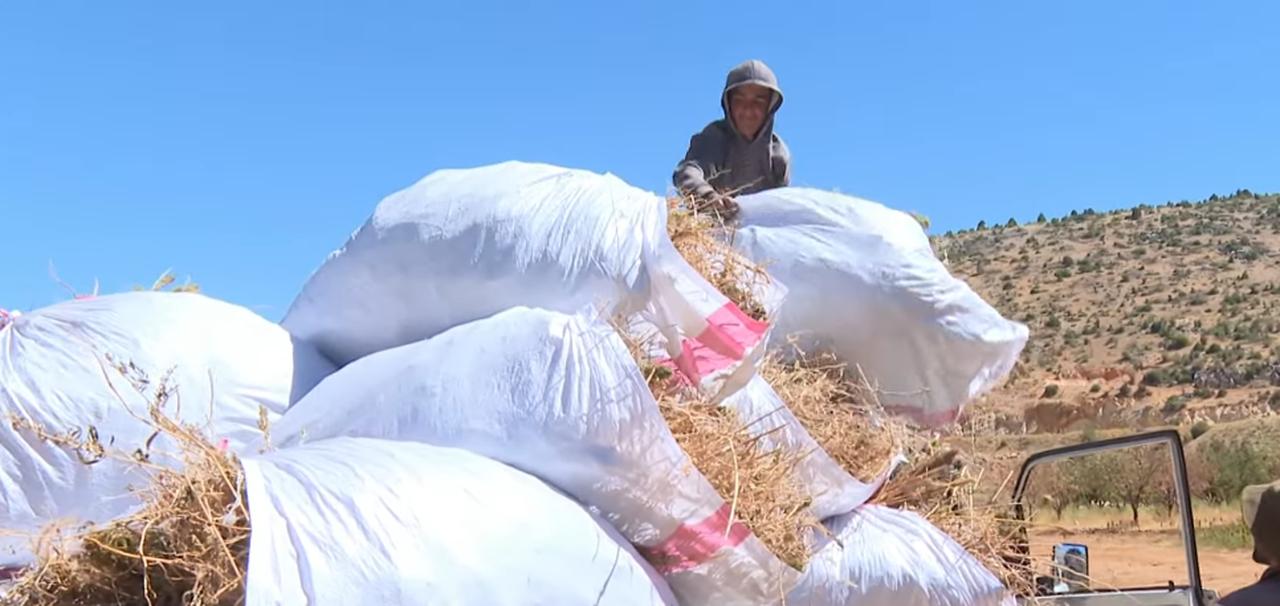
Lebanese authorities have announced the legalization of cannabis cultivation for medical and pharmaceutical purposes as part of a plan to reduce the financial deficit and support the state budget, according to a report by Al Jazeera.
As per the government’s decision, a special body has been established to oversee domestic and international sales, ensuring market regulation and maximizing the economic benefits of the move.
The decision comes after years of security crackdowns on cannabis farmers, who had long cultivated the plant in secret.

Cannabis farmers in this region continue cultivating the plant, saying it is less costly to grow than apples.
Although cannabis cultivation has declined in recent years due to security campaigns and drug factory raids, about 450 hectares in the foothills of Hermel, in western Lebanon, remain covered with cannabis.
The government, they said, provides no alternative crops and has failed to implement any development plans in the area, leaving cannabis cultivation and its sale to drug dealers as the only means of feeding their families, according to their statements to Al Jazeera.

These concerns are expected to ease after the Cannabis Cultivation Management Committee—responsible for overseeing the production of cannabis from which hashish is derived—began its work under a law passed by Parliament in 2020, legalizing the crop for medical purposes.
Committee head Dani Fadel, to reassure farmers, toured their areas and told Al Jazeera that the body would ensure mechanisms for selling their harvests to pharmaceutical manufacturers domestically and abroad at global market prices, instead of relying on drug traffickers.
The international consulting firm McKinsey said this cultivation is expected to generate about $1 billion annually for the state treasury.
It also said the revenue would help revive development efforts that have been stalled for many years.